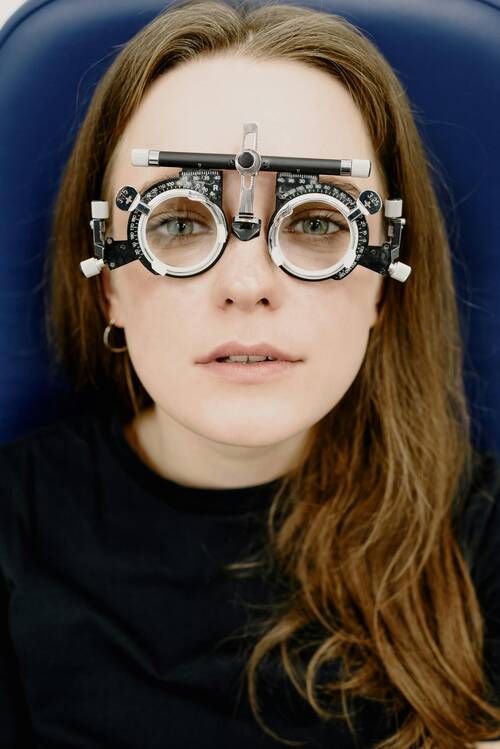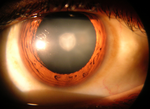If you have diabetes, you’re at risk for several eye conditions, including diabetic retinopathy, which is damage to the blood vessels...
Alzheimer's - Dementia, Author Interviews, JAMA, Ophthalmology / 06.12.2021
Cataract Surgery Linked to Lower Risk of Dementia
MedicalResearch.com Interview with:
Cecilia S. Lee, MD, MS
Associate Professor,Director, Clinical Research
Department of Ophthalmology
Harborview Medical Center
University of Washington Seattle, WA
MedicalResearch.com: What is the background for this study?
Response: Cataract is a natural aging process of the eye and affects the majority of older adults who are at risk for dementia. Sensory loss, including vision and hearing, is of interest to the research community as a possible risk factor for dementia, and also as a potential point of intervention. Because cataract surgery improves visual function, we hypothesized that older people who undergo cataract surgery may have a decreased risk of developing Alzheimer disease and dementia.
We used the longitudinal data from an ongoing, prospective, community based cohort, Adult Changes in Thought (ACT) study. The ACT study includes over 5000 participants to date who are dementia free at recruitment and followed until they develop Alzheimer disease or dementia. We had access to their extensive medical history including comprehensive ophthalmology visit data. We investigated whether cataract surgery was associated with a decreased risk of developing Alzheimer disease and dementia. (more…)
Author Interviews, Cost of Health Care, NEJM, Ophthalmology, UCSF / 16.04.2015
Patients May Still Be Getting Unnecessary Pre-Cataract Surgery Testing
 MedicalResearch.com Interview with:
Catherine L. Chen M.D., M.P.H.
UCSF Dept of Anesthesia
Medical Research: What is the background for this study? What are the main findings?
Dr. Chen: Cataract surgery is a very common and safe surgery that most older adults have in their 70's or 80's. It usually happens as a same-day surgery and most patients only need eye drops to numb the eye with little or no intravenous sedation for a procedure that on average is only 18 minutes long. Given their age, these patients typically have other concurrent medical problems, so even though multiple research studies and professional societies have concluded that routine preoperative testing is not necessary before cataract surgery, we found that this testing still frequently occurs in these patients. More than half of the patients in our study had at least one preoperative test performed in the month before their surgery.
We hypothesized prior to undertaking this study that the older and sicker patients were the ones who were most likely to get preoperative testing. Instead, what we found was that the most important factor that determined whether or not a patient got tested was the ophthalmologist who operated on the patient. This is an important finding because it shows that most patients are not getting extra testing, but the few that do are getting testing because that's the way their ophthalmologist typically prepares his patients for surgery. Most of the time, this testing is not needed and will not affect how well the patient does during and after surgery. (more…)
MedicalResearch.com Interview with:
Catherine L. Chen M.D., M.P.H.
UCSF Dept of Anesthesia
Medical Research: What is the background for this study? What are the main findings?
Dr. Chen: Cataract surgery is a very common and safe surgery that most older adults have in their 70's or 80's. It usually happens as a same-day surgery and most patients only need eye drops to numb the eye with little or no intravenous sedation for a procedure that on average is only 18 minutes long. Given their age, these patients typically have other concurrent medical problems, so even though multiple research studies and professional societies have concluded that routine preoperative testing is not necessary before cataract surgery, we found that this testing still frequently occurs in these patients. More than half of the patients in our study had at least one preoperative test performed in the month before their surgery.
We hypothesized prior to undertaking this study that the older and sicker patients were the ones who were most likely to get preoperative testing. Instead, what we found was that the most important factor that determined whether or not a patient got tested was the ophthalmologist who operated on the patient. This is an important finding because it shows that most patients are not getting extra testing, but the few that do are getting testing because that's the way their ophthalmologist typically prepares his patients for surgery. Most of the time, this testing is not needed and will not affect how well the patient does during and after surgery. (more…)
Author Interviews, Ophthalmology, Statins / 02.12.2014
Statin Use Linked to Cataract Risk
 MedicalResearch.com Interview with:
B. John Mancini, MD, FRCPC, FACP, FACC
Professor of Medicine; University of British Columbia;
Department of Medicine, Division of Cardiology;
Research Director, Division of Cardiology;
Director, Cardiovascular Imaging Research Core Laboratory (CIRCL);
President, Vancouver Hospital Medical, Dental and Allied Staff;
Staff Cardiologist, VH Cardiology Clinics and Cardiac Computed Tomographic Angiography Program; Staff Cardiologist, St. Paul's Hospital Healthy Heart/Prevention Clinic.
MedicalResearch: What are the main findings of this study?
Dr. Mancini: The main findings are that we found evidence of a relationship between statin use and the need for cataract surgery. The unique nature of the study is that it looked for the association in two distinctly different populations (a Canadian database and a separate, American database) and found a consistent association in both populations.
(more…)
MedicalResearch.com Interview with:
B. John Mancini, MD, FRCPC, FACP, FACC
Professor of Medicine; University of British Columbia;
Department of Medicine, Division of Cardiology;
Research Director, Division of Cardiology;
Director, Cardiovascular Imaging Research Core Laboratory (CIRCL);
President, Vancouver Hospital Medical, Dental and Allied Staff;
Staff Cardiologist, VH Cardiology Clinics and Cardiac Computed Tomographic Angiography Program; Staff Cardiologist, St. Paul's Hospital Healthy Heart/Prevention Clinic.
MedicalResearch: What are the main findings of this study?
Dr. Mancini: The main findings are that we found evidence of a relationship between statin use and the need for cataract surgery. The unique nature of the study is that it looked for the association in two distinctly different populations (a Canadian database and a separate, American database) and found a consistent association in both populations.
(more…)

